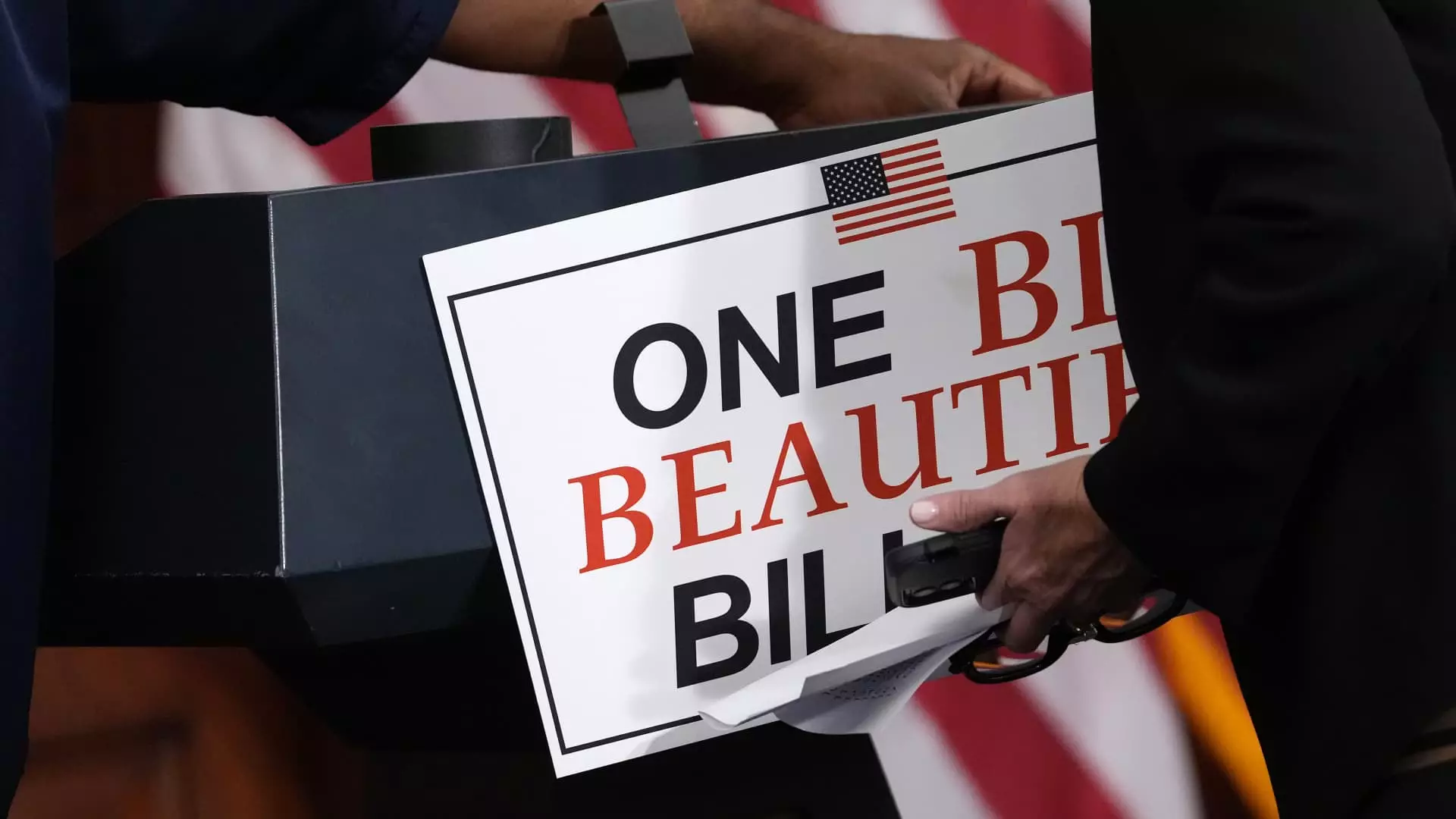The recent passage of the “One Big Beautiful Bill Act” by House Republicans marks a troubling trend in the ongoing intertwining of fiscal policy and partisan ambition. More than a mere legislative milestone, this multi-trillion-dollar tax and spending proposal solidifies a longstanding favoritism within U.S. tax structures, favoring the wealthy at the expense of lower-income families. With this new package, which is heavily influenced by the administration of former President Donald Trump, we see a pattern of tax benefits that disproportionately cater to affluent citizens while squeezing the most vulnerable demographics.
As the Senate prepares to enter the fray — a consideration of amendments and changes is imminent — a growing concern arises regarding the destiny of social welfare programs like Medicaid and SNAP. The proposed cuts to these essential services reflect a ruthless prioritization of tax cuts over human welfare, raising significant ethical questions about the values that underscore this legislation.
Budget Reconciliation: A Double-Edged Sword
Employing the process of budget reconciliation, Republicans aim to slice through potential Senate filibuster obstruction and fast-track their financial vision. However, this approach is fraught with complications. The nature of reconciliation requires the bill to adhere to parameters set by the Byrd Rule, which limits discussions to federal revenue and spending and eliminates provisions deemed tangential. The irony is not lost, as the same process that empowers the majority party to push through their agenda also exposes them to the criticism of fiscal irresponsibility.
The Congressional Budget Office has indicated that the potential deficit increase from this bill could soar to $3.8 trillion over the next decade — an eyebrow-raising forecast that raises existential questions about national financial sustainability. Senator Ron Johnson’s assertion that they have leverage to halt proceedings until spending cuts are adequately addressed reflects an emerging rift within the Republican ranks, hinting that even members of the GOP are wary of the long-term financial implications of these policies.
Reassessing the SALT Cap: A Short-Sighted Fix
Even as meaningful assistance for low- and middle-income earners remains up for debate, discussions surrounding the State and Local Tax (SALT) cap introduce another layer of complexity. The $10,000 limit, a remnant of the Tax Cuts and Jobs Act of 2017, codifies the priorities of high-income earners, particularly in states like New York, New Jersey, and California. The newly proposed SALT cap of $40,000 is a temporary concession that ultimately reinforces previous inequities. It serves to benefit a specific cohort while neglecting to address the foundational disparities faced by the working class.
This inadequate provision raises salient questions: What good is tax reform that merely shifts the burden from one affluent group to another without alleviating the struggles of lower-income households? A higher SALT cap might provide some relief for a few, yet it belies the overarching necessity for broader tax reform aimed at fundamental justice.
Child Tax Credits: Band-Aids on Broader Wounds
On a more positive note, the House GOP proposal’s intention to expand the child tax credit does present some hope for families. The current maximum of $2,000 per child aims to provide a semblance of support for working families trying to navigate economic turbulence. However, with lawmakers like Josh Hawley openly advocating for higher credits, it remains evident that these efforts can only be seen as temporary salves for a greater systemic issue.
While the proposed adjustments to the child tax credit can make a difference, they must be scrutinized within the larger context of tax reform. Will these changes provide meaningful relief, or are they just a politically expedient way to placate dissenters within the party? The answer lies in recognizing that true progress demands a reimagining of tax policies that ultimately serve all citizens, not just the privileged few.
Ethical Considerations and Future Implications
The ethical implications of the “One Big Beautiful Bill Act” cannot be overstated. The prioritization of tax cuts for the wealthy amidst budget cuts to social services raises profound ethical dilemmas about the kind of society we wish to cultivate. A center-wing liberal perspective emphasizes the importance of equitable policies that uplift all citizens rather than sow discord through fiscal irresponsibility.
In the face of growing income inequality, further entrenching the benefits of tax cuts for affluent sectors of society fails to address the systemic flaws that pervade our economic landscape. A more inclusive approach would center the needs of low-income families and vulnerable populations, emphasizing shared responsibility across all economic classes. Without a clear pivot towards equitable policies, the current proposal risks entrenching systemic inequities and perpetuating cycles of poverty and hardship.

